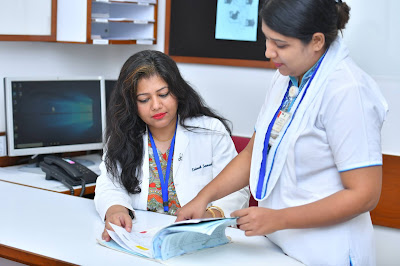To address the critical gap in the response to the non-communicable disease (NCD) epidemic, the Aga Khan University (AKU), in partnership with Duke University, has designed a comprehensive, integrated, multi-disciplinary training programme to train the next generation of leaders in NCD research.
This programme, focused on cardio-cerebrovascular diseases and their shared risk factors, was awarded a research training grant by the U.S. National Institutes of Health for $1.2 million over five years. This grant will be administered by the NIHs Fogarty International Centre.
The epidemic of NCD presents an extraordinary crisis for the world. Over three quarters of all NCD related deaths and 82 per cent of premature NCD related deaths occur in low-and middle-income countries (LMICs) like Pakistan, where locally relevant and high-quality data is scarce.
According to the World Health Organization (WHO), almost 50 per cent of deaths in Pakistan are from NCDs, creating barriers to development goals including poverty reduction, human security, economic stability and health equity. The most prevalent are cardiovascular diseases and an area this research programme will focus on.
There is a pressing need to develop a cohort of trained researchers who can contribute to the understanding of disease prevalence and risk factors as well as develop and test safe, effective, and low-cost solutions.
This grant brings together research and intellectual expertise from two major institutions across the world with the shared vision of enhancing research capacity to tackle non-communicable diseases in Pakistan. This can be achieved as we keep equity and data drivenness at the core of our strategy. I look forward to working with our team at AKU and my long term colleagues at Duke to fulfill the goals of this AKUPI-NCD programme, Dr Zainab Samad, Ibn-e-Sina endowed professor and chair of the Department of Medicine at the AKU, project director and contact principal investigator (PI) of this project, remarked.
The training programme leverages AKU and the Institute for Global Health and Developments extensive development network platform and infrastructure at its flagship site in Pakistan. The aim is to build sustainable research capacity, and develop a pool of Pakistani experts in cardio-cerebrovascular disease surveillance and implementation science who will provide the vision and leadership necessary to produce high-quality research of relevance to tackle NCDs in Pakistan and other LMICs.
This is in line with the Fogarty International Centers mission of supporting and facilitating global health research conducted by U.S. and international investigators, building partnerships between health research institutions in the U.S. and abroad, and training the next generation of scientists to address global health needs.
This award is another milestone signaling the incredibly valuable collaboration between our mutual institutions. We are excited to join this effort as meaningful collaborators, researchers, and mentors. I am humbled to have the opportunity to lead collaborators from Duke University to assist Dr Samad and her team to deliver on this important goal, and anticipate much success that will lead to improved health and lives saved, Dr Gerard Bloomfield, associate professor with tenure, Department of Medicine and the Global Health Institute at Duke University, and one of the PIs on this project, observed.
A large part of this grant will include research training that leverages digital information technology, with an opportunity to work with AKUs research incubator CITRICs Health Data Science Center. From AKU, Dr Ayesha Almas and Dr Ayesha Kamal are multi-principal investigators on this grant. The programme brings together faculty, research expertise and resources from both these entities directly enhancing Pakistans research capabilities and ensuring a comprehensive national response to NCDs.


